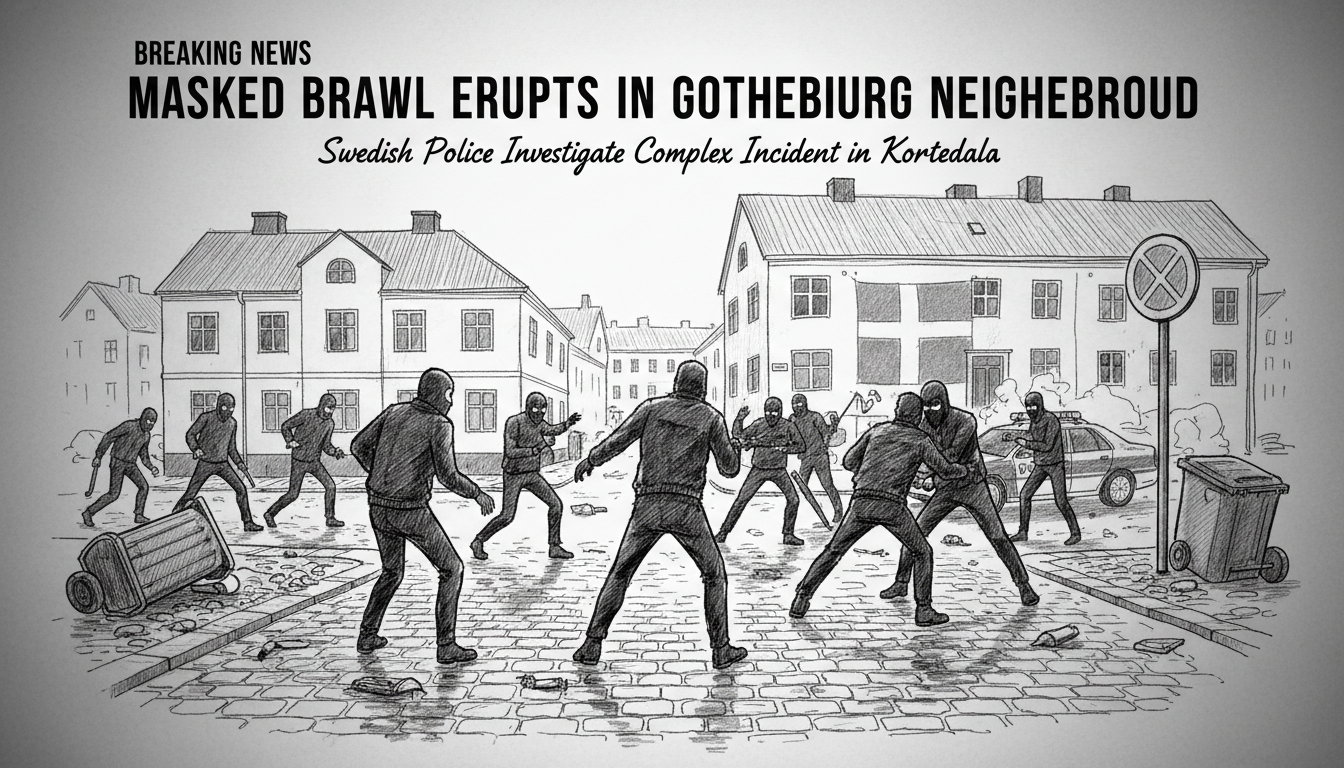A large group of masked individuals engaged in a violent confrontation in Kortedala, Gothenburg on Sunday. Police authorities confirmed multiple people participated in the disturbance. Officers responded to the residential area following emergency calls about the public disorder.
Anders Wennergren, the police officer in charge, described the situation as highly chaotic. He stated investigators need more time to determine what exactly transpired. The incident required substantial police resources to bring under control.
This Gothenburg neighborhood disturbance follows a pattern of similar incidents in Swedish urban areas. Swedish police have documented increasing organized violence in recent years. Many Swedish cities face challenges with coordinated group conflicts.
What does this mean for public safety in Swedish communities? Such events strain police resources and create fear among residents. International readers should understand that while Sweden remains generally safe, these incidents reflect broader social challenges.
Sweden's approach to public order focuses on preventive measures and rapid response. The country maintains relatively low crime rates compared to other European nations. However, organized brawls present particular difficulties for law enforcement.
Local residents expressed concern about the brazen nature of the daytime incident. The use of masks suggests planning and intention to avoid identification. Police investigations typically focus on identifying participants and establishing motives.
Similar group conflicts have occurred in other Nordic countries recently. Denmark and Norway both reported coordinated fights in urban areas. The Nordic region generally experiences lower levels of violent crime than many other parts of Europe.
International observers often question why such events occur in famously orderly societies. Experts point to complex social factors including integration challenges and organized crime. Swedish authorities continue developing strategies to address these public security concerns.
The Kortedala incident represents more than just another police report. It highlights ongoing tensions in some Swedish communities. These events have implications for Sweden's international reputation and domestic social policies.
Police expect to continue their investigation throughout the coming days. They urge witnesses to come forward with any relevant information. The case remains active as authorities work to identify all participants.

